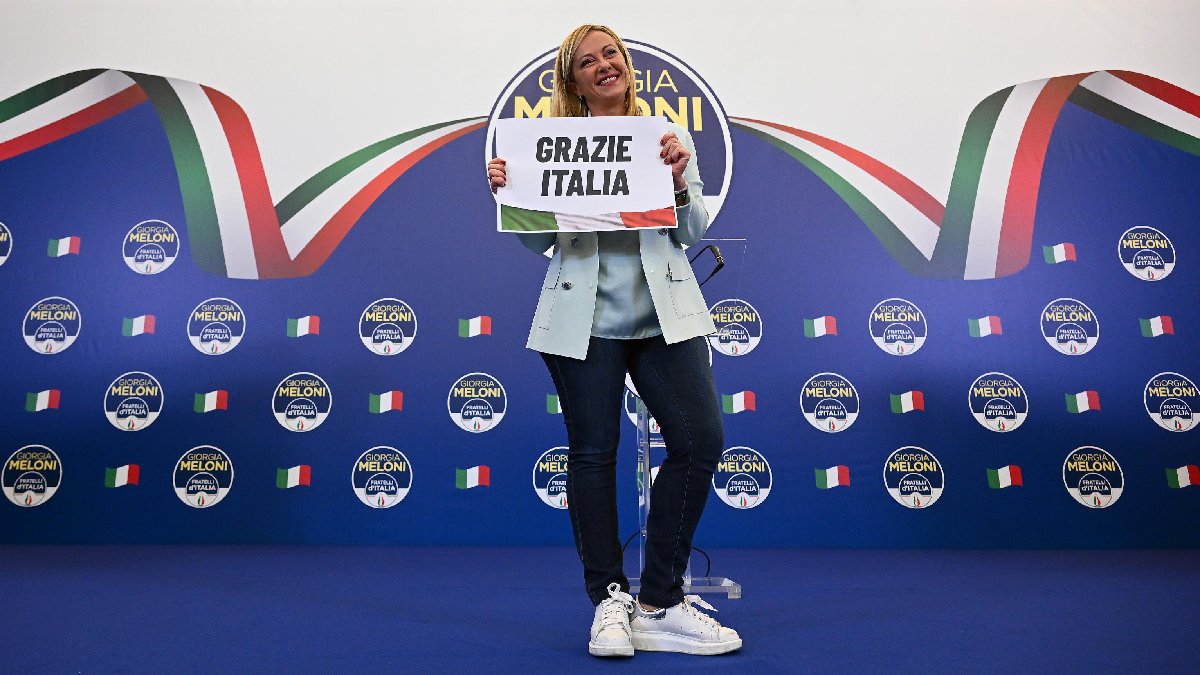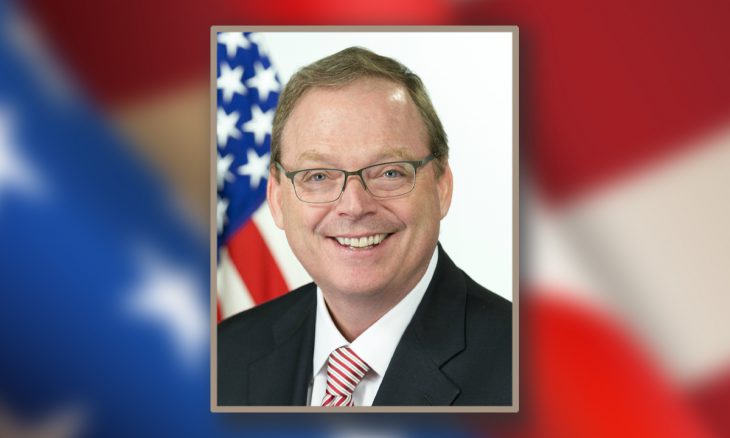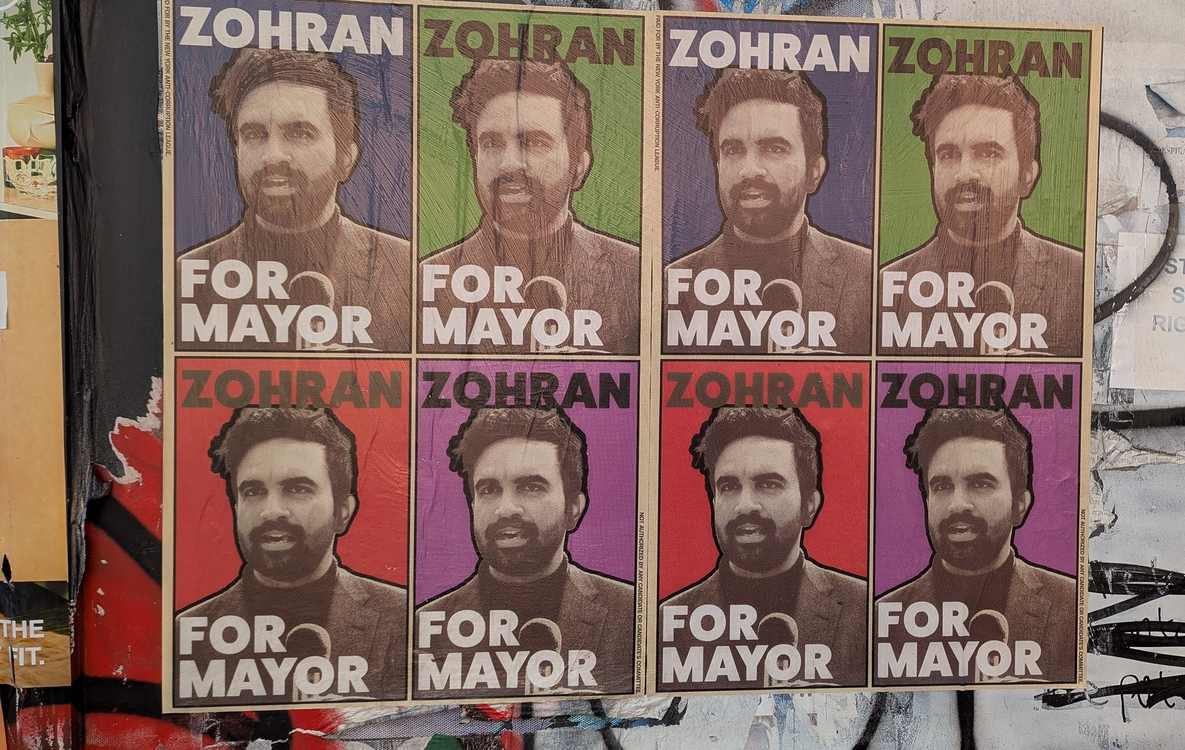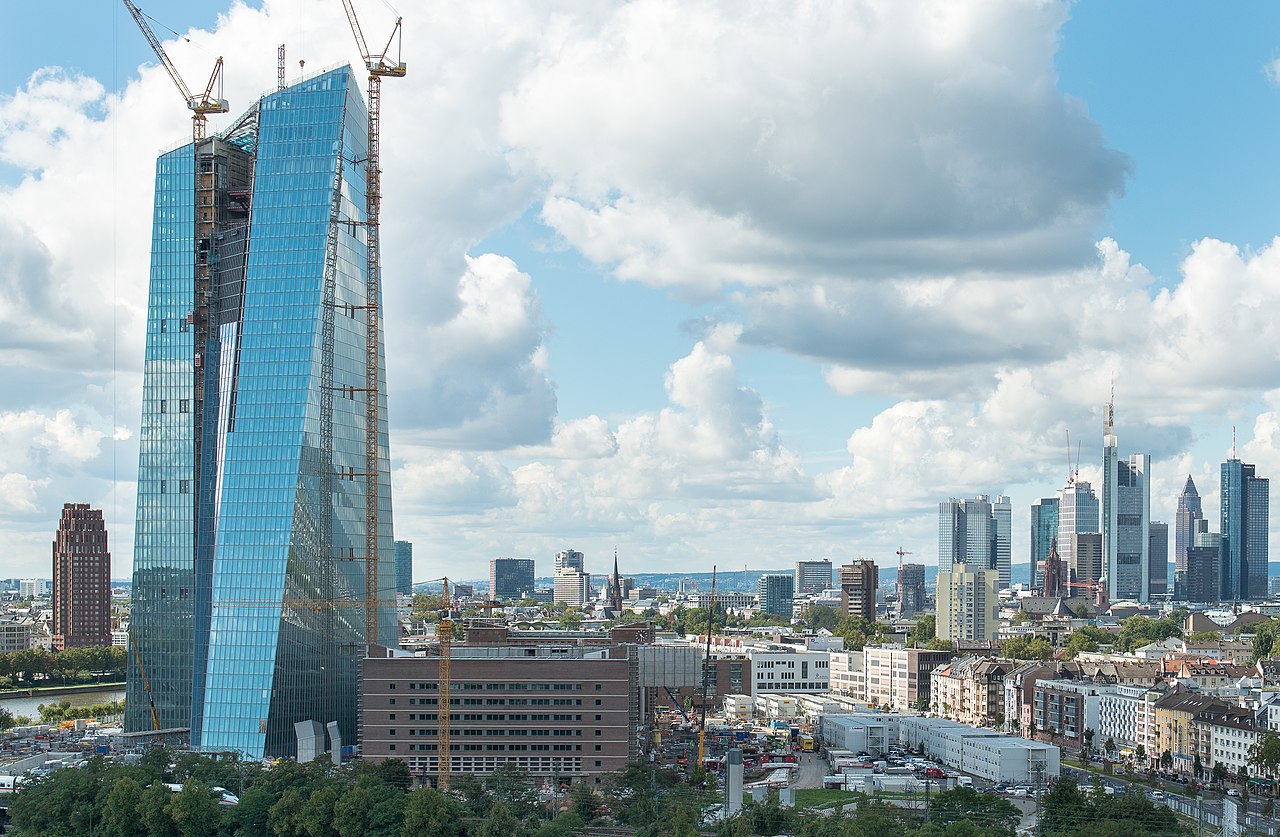PICTURED: Giorgia Meloni of the Brothers of Italy party at a rally over her recent victory. PC: Fair Use.
MILAN, Italy. September 27th, 2022. Giorgia Meloni is a matter of counting procedure away from being the next prime minister of Italy. Much has been made in Western media about her being the first “far-right” prime minister since Benito Mussolini, and concerns over her perceptions on social issues have dominated much of the coverage.
A relative political newcomer, the shock rise, but predicted victory in the Italian Republic’s elections for prime minister has not really been reported on fairly.
Immediately obvious is the terminology: “hard-right” as Ms. Meloni was called by Steven Erlanger in The New York Times, or “extreme-right” as Pieri Ignazi, professor of political science at Bologna University, was quoted as saying by Al Jazeera.
This has hardly been limited to mainstream journals, Open Democracy published a long-form feature on “far-right” Meloni last year which restricted analysis to media coverage, social issues like LGBT rights, immigration, and small snips of dialogue from Meloni’s countless public appearances.
This terminology is simply not accurate. For starters her coalition government formed alongside political dinosaur Silvio Berlusconi and his Forza Italia party, and other entrenched men like Matteo Salvini and his Lega Nord party, is called centrodestra or “center-right,” and that’s exactly what a cash-strapped Italy is going to get.
It’s the 7th different government in the last 11 years to hold power in Rome, and political apathy set in with the election garnering 9.1% less turnout that the previous one. Nevertheless, apart from campaign rhetoric of “a nation of Italian patriots” and “Christian family values” no one should have reason to believe that Italy will escape the political and economic stagnation it has experienced during the 21st century with this latest roll of the political dice.
Center-center-center-center-right
In Europe, political scientists would determine the left-right divide over almost entirely social issues, and even then, mostly fringe social issues like whether a country should pursue unlimited, unrestricted immigration, or unlimited, restricted immigration.
With that in mind the status quo will likely remain the same. If one discounts future intra-party disagreements arising, the Meloni government plans to remain in the EU, in NATO, committed to the sanctions policy on Russia and aid to Ukraine, and to remain in the Eurozone.
Financed entirely by deficit spending and borrowing from wealthier European governments, Meloni’s “25 points” includes a flat incremental tax, a rise in the famously-troublesome south-European pensions, neither of which will do anything to aid the 150% of GDP debt burden, or deficit spending of 120% of tax revenue.
Among her most pressing concerns is to support the birth rate, which being a deeply personal choice made individually by every citizen, can only be “supported” by something like an incentive; i.e. more government money.
In the face of the emerging energy crisis, European governments are spending hundreds of billions to prop up or nationalize gas companies, or to shield consumers from high energy bills or reducing energy consumption.
Suffice it to say Rome’s books are in no shape to support such a wide-ranging suite of economic central planning, which means that Meloni’s claim that Rome has been “surrendering to the bureaucrats in Brussels,” is likely empty words, as her wealthier Euro-neighbors are her best chance to keep the economy afloat over winter and a through a rapidly worsening recession that has the potential to engulf the entire North Atlantic.
According to the European Union’s statistical office, Eurostat, nearly 12 million Italians are on the brink of falling below the poverty line of income 60% lower than the national mean.
Behind Russia herself, and her close ally Belarus, the only nation to consume more Russian natural gas is Italy. While some members of Ms. Meloni’s coalition, including Silvio Berlusconi have expressed sympathy or indifference towards Russia, with the latter saying that Putin was forced by Russians to invade Ukraine, a trend of behavior and attitude towards Russia has been established by the leading Eurocratic nations, and it would take a major act of political will to turn against them.
PICTURED: President of the European Commission, Ursula von der Leyen has said they have the “tools” in case things go in a “difficult direction” between the EU and Italy under Meloni. PC: CC 2.0. European Comission.
The Consensus
Steven Erlanger covering the election for The Times spoke with Mark Leonard, director of the European Council on Foreign Relations, who said that “people in Brussels are extremely anxious about Meloni becoming an E.U. prime minister”.
“One or two troublemakers can do a lot of a damage to E.U. decision-making,” said Leonard, according to Erlanger’s paraphrasing, “but if it’s five or six, it becomes very hard to obtain coherence or consensus”.
Fears that Meloni represents a return to some kind of modern-day version of old Italian fascism arise mainly from the fact that she looks unfavorably upon illegal immigrants, and has suggested using a “naval blockade” to stop migrants arriving on Italian shores across the Mediterranean.
Meloni has pledged not to increase government debt, so funding a large action will make for a stiff test of that promise.
Despite this small change in overall policy, President of the European Commissioner Ursula von der Leyen said that Brussels had “the tools” to use if things went in a “difficult direction” under a Meloni government.
Matteo Salvini, a right-of-center head of the second largest party in Meloni’s coalition took this as a threat, which it probably was, but it’s a view into the kind of entrenched European bureaucracy that Meloni has to rely on.
Italians will hope she can do something to shelter them from the upcoming economic blizzard, but since World War II, the average tenure of a Prime Minister has been 18 months.




